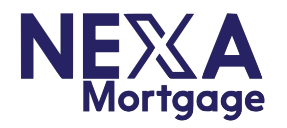

As people plan for retirement and consider ways to make the most of their home equity, one financial tool often comes into the conversation: the reverse mortgage. Though it can offer financial flexibility, a reverse mortgage isn't for everyone. In this post, we’ll break down what a reverse mortgage is, how it works, its pros and cons, and who it might benefit.
What Is a Reverse Mortgage?
A reverse mortgage is a type of loan available to homeowners aged 62 or older that allows them to convert part of their home equity into cash—without having to sell the home or make monthly mortgage payments.
Instead of the homeowner paying the lender, the lender pays the homeowner. The loan is repaid when the borrower sells the home, moves out permanently, or passes away.
The most common type is the Home Equity Conversion Mortgage (HECM), which is federally insured and regulated by the U.S. Department of Housing and Urban Development (HUD).
How Does It Work?
Here’s a simplified look at how reverse mortgages function:
Eligibility:
- Must be at least 62 years old
- Must own the home outright or have a low remaining mortgage balance
- Must live in the home as a primary residence
- Application & Counseling: You’ll need to undergo a HUD-approved counseling session to ensure you understand the implications.
Receiving the Money:
Funds can be taken as a lump sum, monthly payments, a line of credit, or a combination of these.
Repayment:
You don’t make monthly mortgage payments. The loan becomes due when the borrower:
- Sells the home
- Moves out permanently (e.g., into a care facility)
- Passes away
At that point, the home is typically sold, and proceeds go toward repaying the loan. Any remaining equity belongs to the homeowner or their heirs.
Pros of a Reverse Mortgage
✅ Access to Cash: Useful for supplementing retirement income or covering medical expenses.
✅ Stay in Your Home: Allows homeowners to remain in their homes while accessing its equity.
✅ No Monthly Payments: You don’t need to repay the loan as long as you meet the conditions.
✅ Non-Recourse Loan: You or your heirs won’t owe more than the home’s value when it’s sold.
Is a Reverse Mortgage Right for You?
A reverse mortgage might make sense if:
- You plan to stay in your home long-term
- You need to supplement your retirement income
- You have limited savings but substantial home equity
- You’ve considered how it might affect your heirs
It may not be a good fit if:
- You plan to move in the near future
- You want to preserve the home’s full value for your family
- You can’t afford taxes, insurance, and maintenance
Final Thoughts
Reverse mortgages can be a helpful financial tool for the right person in the right circumstances. However, they are complex and come with risks. It’s crucial to speak with a trusted financial advisor and a HUD-approved counselor before making any decisions.
The key is to fully understand the trade-offs—and ensure that a reverse mortgage aligns with your long-term goals.
Have questions about reverse mortgages or retirement planning?
I am local and just a phone call away.
Sal Cavaliere, Mortgage Loan Originator NMLS# 1016785
(972) 988-9757
